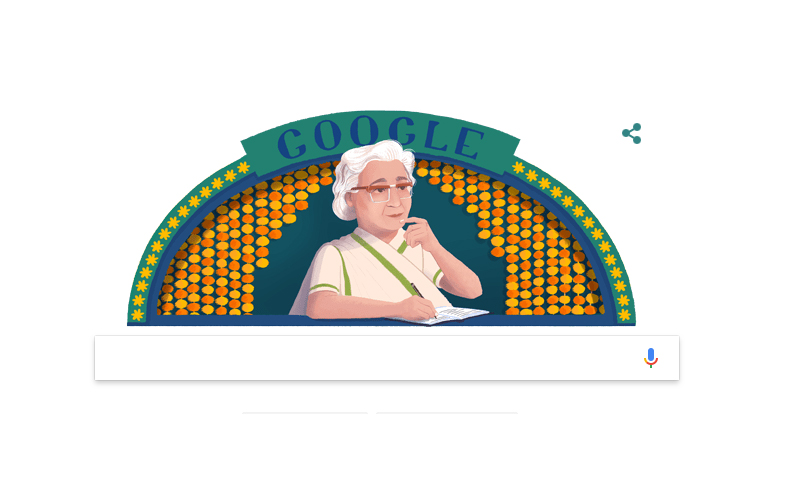New Delhi: Google Doodle on Tuesday celebrated what would have been the 107th birthday of Indian Urdu language author Ismat Chughtai.
Born to a Muslim middle-class on August 21, 1911, in Budaun, Uttar Pradesh, a ninth out of 10 children, Chughtai championed free speech, social liberation, and gender equality through her writing.
Her best-known works, according to Google’s blog post, questioned double standards and encouraged liberation.
Her most famous stories include the short story ‘Lihaf’ (The Quilt), depicted the female same-sex relationships between an upper-class woman and her servant, narrated in the voice of a young girl, was viewed as controversial. This was also the case for another of her famous stories, ‘Gainda’ (Marigold), which told the tale of a domestic worker who falls in love outside the caste system. Chughtai’s character violated the rules prohibiting different castes from associating with one another, as well as the social custom forbidding widows from pursuing a second love,” it added. With a large body of works, Ismat Chughtai established herself as a significant author in the realm of 20th-century Urdu literature. In 1976, she was awarded the Padma Shri by the Government of India “in recognition of her literary accomplishments and her fearless dedication to her beliefs.”
“I am still labeled as the writer of ‘Lihaaf’. The story brought me so much notoriety that I got sick of life,” she wrote in India’s Telegraph newspaper in 2012. “It became the proverbial stick to beat me with and whatever I wrote afterward got crushed under its weight.”
The government of India in 1976 honored Chughtai with the prestigious Padma Shri in recognition of her literary accomplishments. She died in 1991, at the age of 80.

